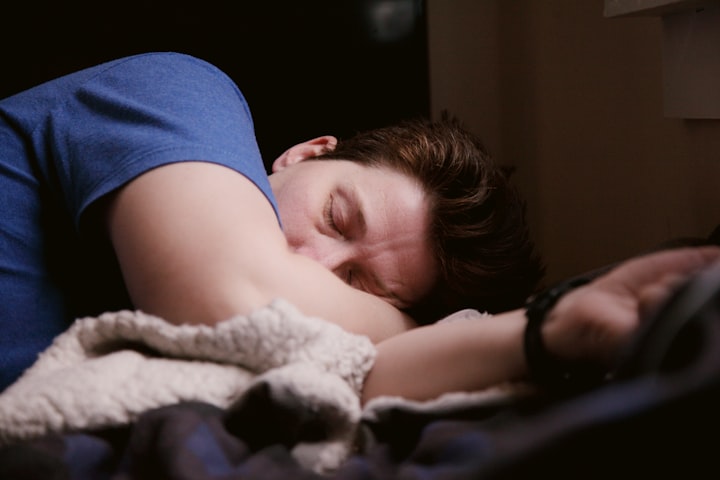Did you know that we spend a third of our lives sleeping? During this rest time, several events occur that we may not be aware of: blood pressure and body temperature decrease, we experience sexual arousal, we speak loudly and we even grind our teeth (bruxism).
But if you are one of those who sleep little , 5 to 6 hours a night, you should know that when you deprive yourself of sleep, an estimated 25% of your brain cells die. Affecting neuronal functions and survival; In addition, the processes and actions carried out by many hormones are interrupted.
Do you know the risks of not getting enough sleep? These are some:
We gain weight: Because the hormones responsible for processes such as metabolism and appetite regulation are altered , leptin levels are reduced, the hormone that makes us feel full. And they increase those of ghrelin that stimulates the desire to eat foods high in fats and sugars. Likewise, and due to fatigue, we avoid doing physical exercises.
The immune system is weakened : “During sleep, the immune system is more active. Although how it works is yet to be fully understood, its influence on strengthening and developing the body's defense system is being studied,” Dr. Elmer Huerta, a specialist in internal medicine, public health and oncology, explained to AARP in Spanish . “When a person does not sleep well he is much more susceptible to virus infections; it has even been discovered that autoimmune diseases could be more frequent”.
Increases the risk of diabetes: More than 400 million people live with diabetes worldwide. When we reduce the hours of sleep, less insulin is released, a hormone that regulates blood sugar, and the body cannot process glucose. This accumulates in the bloodstream and that energy is not directed to the cells, where it is needed, thus increasing the risk of developing type 2 diabetes.
Vulnerability to depression and anxiety : Our mental health is affected by mood swings, anxiety. All these alterations influence the secretion of substances such as cortisol, which inhibits and suppresses sleep, as well as prolactin or serotonin related to the regulation of sleep cycles, moods or pain perception.
Increases the risk of cardiovascular diseases and hypertension : About 2,200 Americans die every day from this condition, that is, one death every 40 seconds, according to the American Heart Association (AHH). “Heart attacks and strokes are frequently seen in patients with chronic sleep insufficiency. Cardiac arrhythmias (such as atrial fibrillation) have also been linked,” explained Dr. Chris Winter, neurologist, sleep specialist, and author of The Sleep Solution .
Reduced sexual desire : Men who suffer from sleep apnea , a disorder in which breathing repeatedly stops and starts, have the lowest levels of testosterone. This, added to little rest, decreases libido and sperm production, increases the risk of erectile dysfunction and lack of interest in sex.
In the case of women, it is related to a lower sexual desire and a reduction in genital activation. By increasing the hours of sleep, libido increases by at least 14%.
Risk of getting breast cancer: A Michigan State University study showed that melatonin suppresses the growth of breast cancer stem cells. This hormone is manufactured by the brain to regulate sleep cycles and its decrease puts us at risk.
Cognitive function is affected (memory deficiency) : Certain activities require concentration and are related to the hours we sleep. It is estimated that 7% of all car accidents in the United States, and 16% of fatal ones, are related to driver drowsiness. "For decades, studies have shown that people who don't get the recommended 7 to 8 hours of sleep are more likely to have reduced longevity," explains Dr. Michael A. Grandner, director of the Sleep and Health Research Program. at the University of Arizona.
Decreases muscle growth: Did you know that after the age of 30, the levels of human growth hormone are only around 20% of the maximum parameters that we reach in our childhood and that they decrease by 12 to 15% per decade? If we also get little rest, both the human growth hormone, testosterone, and melatonin, which emphasize the process of protein synthesis and are involved in the correct phase of cell reproduction and regeneration, will decrease and the damage caused by the stimulus of training will not be corrected and muscle mass will be lost.
The aging process is accelerated: Many hormones and cells, by varying their levels, will not be able to repair the damage in our body. According to an investigation carried out by the Sleep School, when subjecting the participants to sleep for only 6 hours, it was determined that “expression lines and wrinkles increase by 45%, and the number of spots on the skin increases by 13% ”.
It is true that we dedicate a good part of our lives to rest, but do you really think that we have wasted that time? I think you will agree that it is a third of life gained to feel healthier and continue with new projects.







Comments
There are no comments for this story
Be the first to respond and start the conversation.